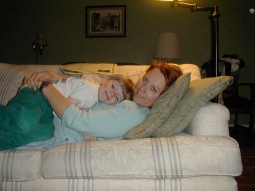When was I last moved to tears? A better question would be when am I not moved to tears? But I wasn’t always so weepy.
In my younger years, I was reluctant to cry, pushing down emotions so that I would not appear weak. As a young woman breaking into the testosterone-charged world of litigation, I needed to project a strong, self-confident manner. Of course, beneath my tailored navy suit, starched white blouse and paisley silk tie, I was a quivering mess of nerves and insecurity. It was the early 1980’s and women were still a rarity in the suburban courthouses where I practiced. Crying would have undermined my abilities, and confirmed the older attorneys’ suspicions that women weren’t cut out for the courtroom battlefield. So, no tears allowed.
Fast forward to the 21st century. My tear ducts are well-exercised, making up for years of inactivity. My eyes well up easily when I recount a poignant story, much to the amusement of my teen-aged twins. I snivel when listening to a particularly moving segment of StoryCorps.
Most recently at a music festival, I heard bluegrass artist Claire Lynch perform “Dear Sister” and my cheeks were streaked with tears. Music often is the trigger to these lachrymose moments. Jay Ungar’s evocative “Ashokan Farewell,” made famous by Ken Burn’s Civil War documentary, reduces me to tears every time I hear it. I cry at musicals, responding more to the music than the plot. The song “Seasons of Love” always chokes me; “Defying Gravity” can start the waterworks. The indie film Once devastated me with a one-two punch: a bitter-sweet plot and a heart-breaking ballad.
Most amazing to me is the ability of commercials to produce tears. My eyes glistened every time I saw the Apple commercials with Robin Williams’ monologue from Dead Poets’ Society, and that was months before his tragic death. If I heard it now, my weeping would know no end.
What causes me to dissolve into a damp, sniveling cliché? I blame the biology of motherhood. I noticed my proclivity for tears after my children were born. Suddenly, the slightest event could produce tears; it made no difference whether it was a happy or a sad moment. Throughout literature, you find mothers weeping, wailing, lamenting. Once you have children, you realize the fragility of life; you recognize the world’s ability to break your heart. You understand that you cannot protect them; you cannot arm yourself against the dangers and pain of the world. Tears are our release, because if we had to hold all that emotion within our hearts, we would shatter. I am grateful for the ability to cry, even if my children sometimes laugh. At least they know I care.
This was my response to The Daily Post:
http://dailypost.wordpress.com/dp_prompt/moved-to-tears-2/



I’ve noticed the same thing: my waterworks ramped up production after becoming a mother!
And then we encounter menopause, another wild hormonal roller coaster ride, producing even more tears!
I was nodding emphatically all the way through the final paragraph. Well said!
Thanks, Linda.
Absolutely. You’ve captured my own experience very eloquently. I remember fleeing the room, weeping, soon after my first child was born. My husband and I were watching Cold Mountain and they’d put the baby out in the snow and not let the mother go to him. That was the start of my inability to expose myself to any books or media more horrible than Cars, Tangled, Winnie the Pooh and the like (and I sometimes cry at those).
Oh, Disney film makers definitely know how to turn on the waterworks! I cried through Toy Story 2 when Jessie remembered her first owner.
Pingback: Poem / Poetry – “Making It Out Alive” | toofulltowrite (I've started so I'll finish)